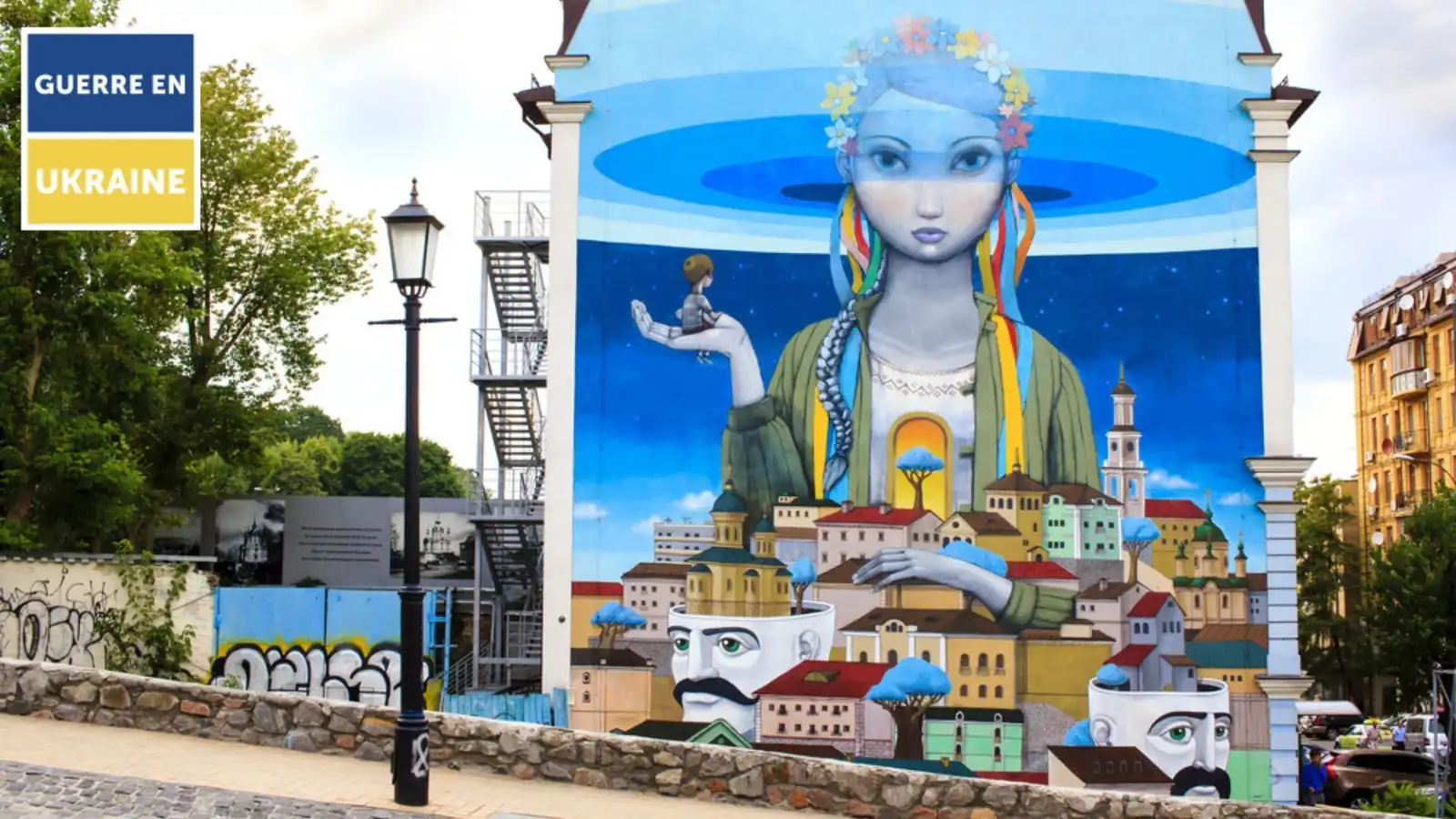Home>Helping Ukrainian Women Artisans
20.02.2023
Helping Ukrainian Women Artisans
Since 2019, PRESAGE - Sciences Po's Gender Studies Programme, has joined Women Forward International, a global nonprofit which partners with private sector, academic, and non-profit organizations to identify research critical to human progress and implement solutions.
Each year, Women Forward International enables Sciences Po students to participate in organisations by partnering them with multilateral institutions, corporations and nonprofits on cutting edge research that advances women. A team of first year Master's students is paired with an organisation to complete a field research, write a report and give recommendations on a specific issue related to women's rights.
During the academic year 2022-23, a group of five Sciences Po Master's students – Isabel Davis, Anaïs Fiault, Nadine Henschel, Sasha Milbeck and Clara Ruthardt – lead an action-research project, in partnership with Nest, and thanks to the support of the Open Society University Network (OSUN). Here is the first article written by the five students.
Displacement and Ukrainian Refugee Artisan Women
24 February, 2023 will mark one year from the beginning of the Russian invasion of Ukraine and pursuant war which has resulted in a catastrophic loss of life and the displacement of over 8 million Ukrainians to Europe, the majority (87%) of whom are women and children. Our research team is collaborating with two U.S. based NGOs, Women Forward International and Nest, to understand how displacement has specifically affected Ukrainian refugee artisan women currently in Europe. We aim to create policy recommendations for states and NGOs that target their social and economic empowerment.
Studies show that women often hold much of the cultural heritage and knowledge in a given culture. In these times of war, where not only Ukrainian territory but also Ukrainian national identity is under attack, we want to understand how women artisans now make sense of their work. We also know that refugees often face difficulties integrating into host communities and that economic empowerment can facilitate better social integration. We hope to learn whether host countries and communities have created a space where these artisan women can continue their craft and engage in entrepreneurship if they so wish. There is currently very limited academic research that specifically addresses such issues within the context of the war in Ukraine and this is a research gap we aim to fill.
We aim to conduct an analysis on 3 countries: Poland, Germany, and France to represent a diverse range of women and experiences in our report. We will compare the situation in the different host countries which have had different policy approaches that target displaced Ukrainians, albeit within a unified European framework. By the end of our research we hope to find out how Ukrainian refugee artisan women value their craft work in the current context of war and displacement (as a way of coping, a source of income, a community building tool…) and how they navigate new obstacles and opportunities within their host country.
Current Trends in France
To this date, we have conducted interviews in France and have begun identifying certain trends:
- The socio-cultural benefits of artisanship
Many Ukrainian refugee artisan women reported having a strong cultural connection to artisanship and described it as a tool for connecting with past generations and preserving Ukrainian national/cultural identity. They also brought up that it can help bring Ukrainian communities in the host country together. Several of them also mentioned how selling their craft has helped them connect with the local French population and were enthusiastic about sharing and promoting Ukrainian culture in France by teaching Ukrainian craft classes.
- The barriers to continuing artisan work
Many of the women were able to do more artisan work back in Ukraine and could even make it a source of income. Since the war, many are doing less artisanship in their host countries as they face new obstacles, such as lack of space and/or supplies, lack of understanding of tax and self-employment procedures, issues with information accessibility and professional networks that could help them navigate the landscape, and language barriers.
Next Steps: Getting ready for Poland and Germany
This month, our team will be heading to Warsaw and Berlin to conduct more interviews with Ukrainian refugee artisan women. We are excited to see if the trends we noticed in France are comparable to those in Poland and Germany or whether new findings will emerge in our study.
Special acknowledgements: our current research would not have been possible without the support of our incredible translators Anastasiia Kuznietsova and Anastasiia Amelicheva as well as the Ukrainian women who decided to share their experiences with us.
MORE INFORMATION:
- The Action-Research Project “Helping Ukrainian Women Artisans” of PRESAGE, conducted by five Sciences Po Master’s Students thanks to Women Forward International and OSUN.
- Sciences Po's news about the war in Ukraine
